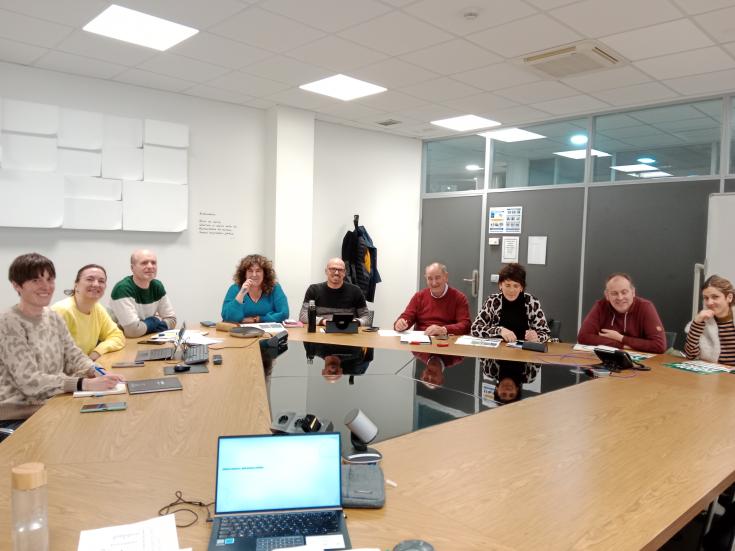Leartibai Fundazioa Advances Energy Goals

On December 17, 2024, Leartibai Fundazioa organized its 6th Stakeholders (SH) meeting, marking an important milestone in the organization's ongoing efforts to promote sustainable energy and climate initiatives within the Basque region. The meeting served as a platform for discussion, planning, and review of key activities, including the upcoming field visit to Romania and the recent dissemination sessions on the EKIOLA project. Additionally, significant attention was given to the broader context of Euskadi’s energy and climate strategy, which is being developed by the Basque Government. One of the major highlights of the 6th SH meeting was the detailed presentation of the upcoming field visit to Romania, scheduled for January 21-22, 2025. This visit aims to provide participants with first-hand experience and insights into successful energy and climate initiatives being implemented in Romania. The visit will serve as an opportunity to gather knowledge, exchange best practices, and strengthen cross-border collaboration in the field of energy transition and climate strategy.
Another important agenda item discussed during the 6th SH meeting was the dissemination and awareness-raising activities related to the EKIOLA project. Over the course of December 2024, three information sessions were held in the municipalities of Ondarroa, Lekeitio, and Markina-Xemein. These sessions aimed to inform the general public about the goals, benefits, and opportunities associated with the EKIOLA project.
The EKIOLA project seeks to promote community-driven energy production, with a particular focus on encouraging local families to participate actively. By generating their own energy, these communities can reduce their dependence on external energy providers, promote sustainability, and achieve greater energy autonomy. The dissemination sessions were well-received and generated significant interest among local residents, further advancing the project’s goal of increasing community participation.
The primary objective of these sessions was to encourage more families to join the project. Participants were provided with detailed explanations of the benefits of the initiative, including the potential for cost savings, increased energy independence, and contributions to the broader goals of sustainability and climate action. The meetings also offered a space for residents to ask questions and receive clarification on technical, financial, and operational aspects of the project.
The 6th SH meeting also served as a forum for dialogue on the Basque Government's efforts to develop a comprehensive energy and climate strategy at the Euskadi level. The government’s strategy seeks to establish a long-term framework for achieving energy transition and addressing climate change in the region.
During the meeting, it was noted that a first draft of the strategy has been prepared, and stakeholders, including local town councils, have been invited to provide feedback, suggestions, and proposals. This participatory approach aims to ensure that the strategy reflects the perspectives and needs of local communities and municipalities.
The Basque Government has facilitated the participation of local authorities by providing a dedicated link through which town councils can submit their comments and suggestions. This open process underscores the government's commitment to inclusivity and transparency in the development of its energy and climate policies.
Municipalities have been encouraged to engage actively in this process, as it represents a unique opportunity to shape the future direction of energy and climate policy in Euskadi. The strategy will play a critical role in guiding regional actions, allocating resources, and defining the priorities for climate resilience, renewable energy development, and sustainable energy consumption.
These combined efforts highlight Leartibai Fundazioa’s dedication to fostering a culture of sustainability, resilience, and active citizen participation in the energy transition process. As these initiatives progress, the impact on local communities, energy independence, and regional climate resilience is expected to be significant.
